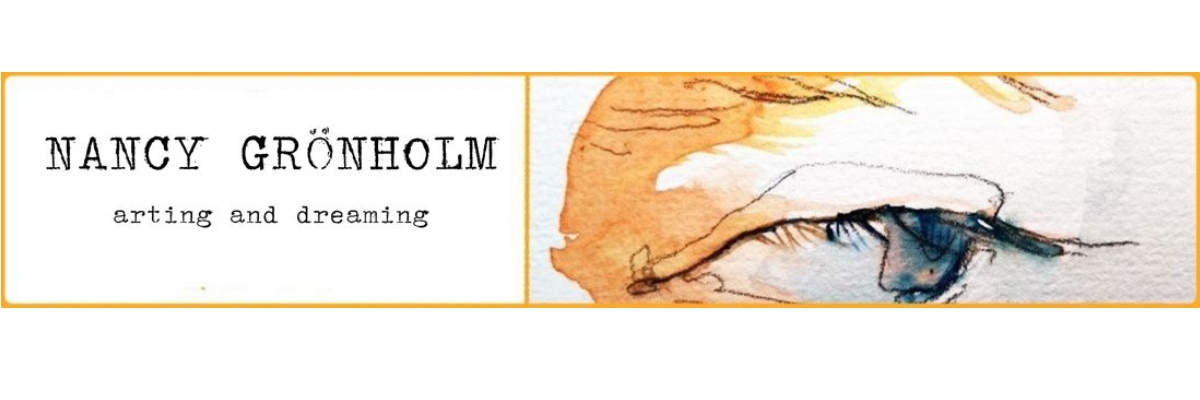We have everything, and value nothing. AI, art, music, content and sabotage.
Sabotage.
The word was originally used to describe workers "walking noisily (with wooden clogs) or being clumsy" and "working slowly". It was used as a means of protest for workers before there were standardised workers' rights; if they were forced to work, they'd do it poorly.
Nowadays, when I think of the word sabotage, my first thought goes to us, humankind, sabotaging our own existence. And I'm not even talking about the environment och climate change, things that are vital to the survival of the planet - whether you support the politics of it or not, there's no denying that we can't drink contaminated water or breathe exhaust fumes and expect it to not affect life negatively - no, I'm talking about Artificial Intelligence.
Artificial intelligence, or the idea of it, has been around for at least thousands of years. Perhaps it started with the belief that a statue of a god, also held the spirit of the god within it; more certainly it is connected to the thought that everything in nature can be measured or explained using mathematics.
The French philosopher Julien Offray de La Mettrie (1709-1751), wrote "L'homme machine" (Man a Machine) and famously took the position that Man had no "soul", only instinct, governed by the body, like any other animal.
And automatons have been a thing since ancient times, the Chinese had them, as did the Greeks, and the European courts were practically littered with contraptions that could sing or play instruments and games. Some were meant as toys, and some claimed to be capable of independent thought and even telling the future.
Then came Science Fiction. And Philip K. Dick's "Do Androids Dream of Electric Sheep" (G. B. Sadler explains its philosophy and concept). It wasn't the first piece of popular media to take up the idea of machines and artificial minds and pitting them against humans, but it came at the height of modern popular culture and inspired so much of what we now find fundamentally "SciFi". It is the story that gave us Blade Runner.
So what does all of this have to do with me, a traditional media artist? Well, what got me really inspired to write this blog post, was this video by Rick Beato, titled "The Real Reason Why Music Is Getting Worse":
In the video, Beato talks about how we treat music, and how, because we can get it for free anytime we want to, we don't value it.
He doesn't go too much into AI, only mentions that it is part of the problem, in that anybody anywhere can make a song. On the surface that sounds great, very democratic and all, but when you're using technology to cut the wrong corners, what you get is simplified mass-produced content blanketing our ears, we no longer hear the actual song, the lyrics, the context. It's just background noise, like shop music. And I don't think it's doing our brains any favours. (And this is just me spinning off into a billion other thoughts, check out his video to get what he's saying!)
I know I'm not the only one thinking this; the internet is full of people leaving social media because all that constant content consumption wears the soul thin. And now that there's AI, I can no longer scroll upon a watercolour painting and enjoy it without first checking that the artist is real. It's VAR all over again. ;)
The endless feed of art, images, reels, repetitive sound bytes, robotic text-to-speech voice-overs, it's all free (minus the device and wifi), and we give it so little worth. And by actively choosing a computer-made product over that of a human, I feel like we're devaluing ourselves. Intent should matter more.
Right now, AI is just a computer doing what it's told, it doesn't understand, but what if it actually developed a sense of self - while being better than us at literally everything? Would we let them take over? And if we limited their powers, how ethical would that be?
Technology is a wondrous thing and I want to see where it takes us; in the ideal world, we would, for example, not even need to work to survive. AI could do so much good (and it does!), but we don't need AI performers, artists, writers, we don't need fake images of real places and people. If one individual can use the technology to create more efficiently, cut out the paperwork so to speak, great. But when it's used to get around paying salaries, when all the profit is going into the hands of even fewer, that should not be accepted.
Sure, you could argue that it's evolution, baby! But it's not really though, is it, it's profit. And evolution, like tradition, is a poor excuse for bad behaviour anyway. Are we really incapable of change? Do we not have minds of our own? Are we actually just machines acting on input?
Some creators have taken to "cloaking" (Glaze) their images, as a way to sabotage the AI feed. Somebody even joked that they would flood their social media with bad art to ruin the AI output. Did anybody see the Facebook form that allegedly lets you opt out of AI collecting your content? Somehow I'm not so trusting; I'm not even sure that it would make any difference.
Rick Beato's video has a much more positive outlook than my post; he ends the video with a wish for us to turn off our phones and take the time to actually listen to a song or two. No skipping songs, no having it on in the background while we're working. Experience it while we still can.
Because we have the world at our fingertips and .. we're about to swipe.


Comments
Post a Comment